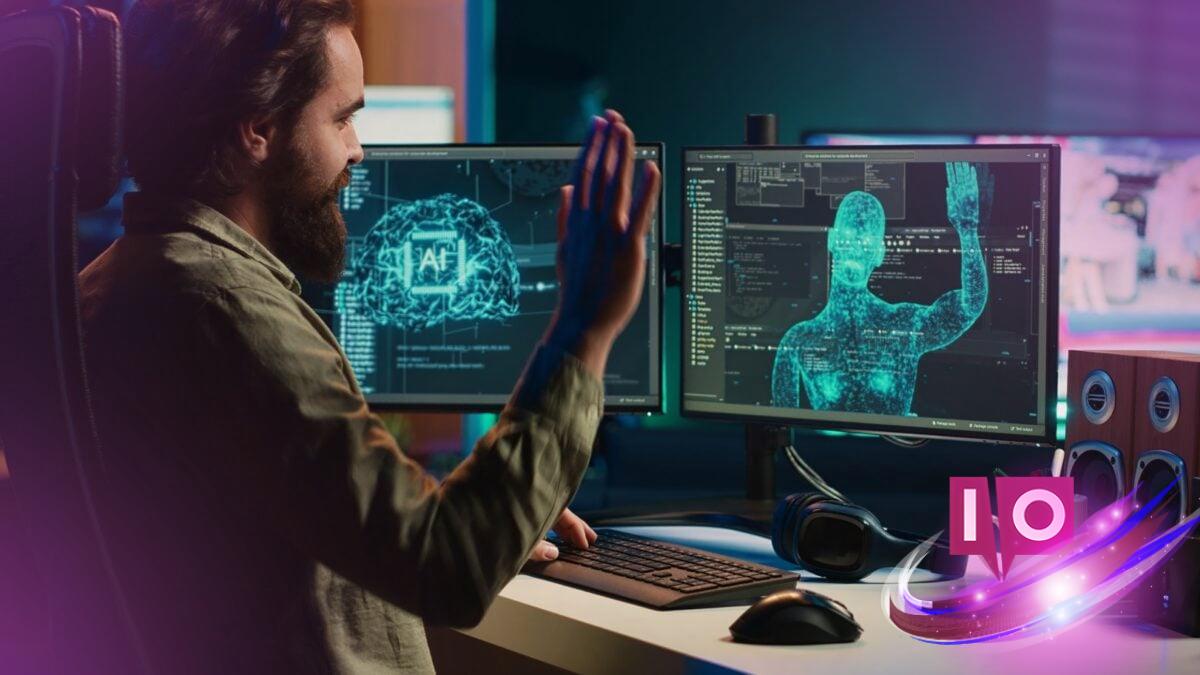As we look to the future, the leaders in AI are raising the bar higher than ever before. Their insights paint a picture of a rapidly advancing technological landscape that could reshape our world. The urgency is undeniable: artificial intelligence is expected to evolve dramatically in the coming years.
Dario Amodei, CEO of Anthropic, recently made headlines by asserting that “by 2026 or 2027, we will have AI systems that are broadly better than almost all humans at almost all things.” This bold prediction came during the World Economic Forum in Davos, Switzerland, where industry heavyweights gathered to discuss anticipations for technology.
In a similar vein, Elon Musk suggested that we might see AI systems surpassing individual human intelligence within this year, predicting a complete AI superintelligence by 2030. Meanwhile, OpenAI CEO Sam Altman believes that artificial general intelligence (AGI) could very well emerge before the end of Trump’s presidential term.
The Quest for Superintelligence
This concept of superintelligence or AGI stands as a proverbial North Star in the tech industry. Major companies like Meta are investing billions to achieve this goal. CEO Mark Zuckerberg has expressed confidence that the development of superintelligent AI is “in sight.” However, the contrasting opinions among experts prompt us to take a closer look.
Diverging Opinions on AI Progress
Interestingly, a recent study from the Forecasting Research Institute offers a more tempered view of the timeline for superintelligent AI. Researchers led by economist Ezra Karger have consulted a wide range of professionals, including computer scientists and AI researchers, to gauge the expected advancements in AI capabilities. Their findings present a stark contrast to the optimistic timelines put forth by tech executives.
This study highlights that many experts assign only a 23% probability to the rapid advancements touted by some industry leaders. They envision a future where AI could create award-winning novels, rapidly conduct research, and revolutionize our approach to healthcare, much like the ambitious claims from Silicon Valley.
Understanding the Bottlenecks
One expert noted that the reality of major system changes typically takes longer than anticipated. They stated, “Radical change in major systems just takes longer than 4-5 years.” A sentiment echoed by another expert who pointed out that bottlenecks in various sectors could slow down AI’s impact on our lives.
Questionable Metrics and Hype
Recent studies, including one from Oxford, have prompted questions about the reliability of many benchmarking tools used in AI assessments. Given this uncertainty, not all tech leaders maintain an unwavering belief in the promise of superintelligence. For example, Microsoft’s AI chief, Mustafa Suleyman, has called this pursuit “absurd,” while Salesforce CEO Marc Benioff referred to the hype surrounding AGI as an instance of “hypnosis.”
Public Concern over AI’s Future
It’s crucial to understand that among those who do anticipate the imminent arrival of superintelligence, there are growing concerns. A petition signed by more than 100,000 individuals, including influential figures like Steve Wozniak and AI pioneers Geoffrey Hinton and Yoshua Bengio, calls for a halt to superintelligence development until critical conditions are established.
What Does the Future Hold for AI?
Despite reservations, there is a consensus among many experts that AI holds transformative potential. They estimate that by 2040, AI could be as significant as electricity in our daily lives. Furthermore, by 2030, approximately 15% of adults may experience daily companionship from AI, and it could assist in 18% of work hours in the United States alone.
But why is AI so difficult to predict accurately? One past study found that even experienced AI experts and superforecasters underestimated the rapid advancements in AI technology. For instance, AI was expected to win a medal at the International Mathematical Olympiad by 2030, but a Google-developed system achieved this milestone as early as July of this year.
As we navigate this evolving landscape, staying informed is paramount. AI’s potential power and impact cannot be understated, and as technology continues to advance, being well-versed in its progress will only benefit us moving forward.
What can we expect from AI in the next decade? While predictions differ, the possibilities are boundless and very real in the near future.
Will AI ultimately exceed human intelligence in every aspect? This remains a contentious debate amidst evolving capabilities, with leaders divided on the plausibility of superintelligence.
How do experts view the current pace of AI development? Many experts express skepticism about the timelines proposed by industry heavyweights, suggesting a more gradual evolution of technology over the coming years.
What are the impending challenges AI might face before it achieves superintelligence? Experts highlight potential bottlenecks and institutional hurdles that could impede rapid advancement in AI.
As we contemplate these questions and more, there’s no denying the excitement surrounding AI’s future. It’s an ever-expanding universe worth exploring, and I encourage you to dive deeper into the topic. For more insights and articles, check out Moyens I/O.
